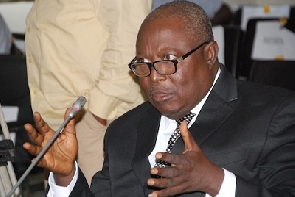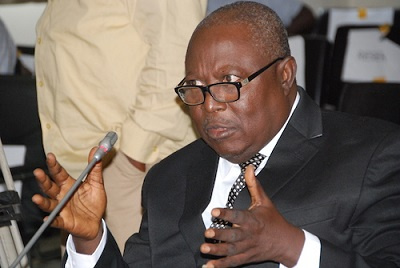 Former Attorney General, Martin Amidu
Former Attorney General, Martin Amidu
Former Special Prosecutor Martin Amidu has strongly criticised suggestions that the ongoing process to investigate the Chief Justice should be conducted publicly, describing such calls as rooted in “political preferences” rather than constitutional merit.
Amidu argued that the 1992 Constitution’s provisions for the removal of Superior Court Justices were carefully refined over decades to protect judicial integrity.
“The current process is not new. It is an improvement upon earlier constitutions—from 1969 through 1979—and was designed deliberately to shield the Judiciary from politicised trials,” he said in an open letter sighted by MyNewsGH.
Amidu noted that a key advancement in the 1979 Constitution was the introduction of a detailed petition process, the establishment of a prima facie case, and the holding of hearings in camera—all intended to uphold the dignity and independence of the judiciary.
“The framers were clear: such proceedings must not become public spectacles,” he stressed.
He also pointed out that the 1992 Constitution further democratised the process by altering the composition of the inquiry committee—reducing Supreme Court representation and including ordinary citizens. “Only self-conceited lawyers would claim those citizen-electors had no sense of justice,” he added.
Critiquing recent commentary suggesting that the Chief Justice is being unfairly targeted due to political motivations, Amidu stated that the constitutional process being followed has existed for over 50 years.
“The President, under this scheme, is merely a conveyer belt—receiving petitions and consulting the Council of State. He doesn’t act arbitrarily,” Amidu clarified.
He cautioned that those advocating for public hearings—especially when the sitting President belongs to an opposing political tradition—must offer “credible arguments” to override long-established constitutional reasoning.
“If those who once served Presidents and appointed judges now question the very framework they operated under, it’s not the Constitution that has failed. It’s their own shifting interests,” he said.
